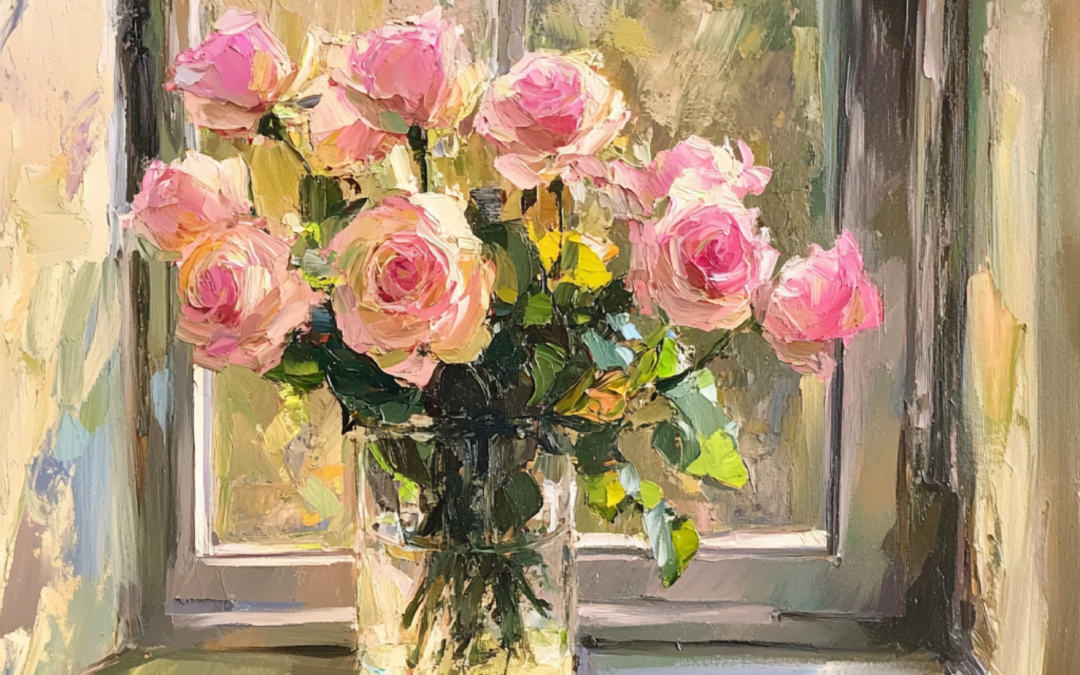Your Dream Customer
Hook Day
The Day It All Begins
The moment you pick up your first crochet hook, your journey begins. The day before, you may never have given crochet a second thought, but now, you’ve entered a world filled with texture, creativity and endless possibilities. From that moment forward—let’s call it Hook Day—you are a crocheter, no matter your skill level.
Transition
Some people crochet as a relaxing hobby, while others take their passion a step further and turn it into a business. Whether it takes weeks, months, or even years to make that transition, the important thing is that it’s possible. But before diving into selling your work, there are key things to consider.
Running a crochet business is more than just making beautiful pieces—it’s about selling something that people want. That could be:
- Handmade crochet goods
- Crochet patterns and designs
- Teaching crochet skills through classes or tutorials
- Selling crochet supplies
- A mix of these options
The secret to success is finding the right balance between what you love to create and what others are eager to buy.

Finding Your Dream Customer
Someone? Anyone? No one?
In the beginning, you might think that anyone willing to buy your crochet is your dream customer. While it’s tempting to sell to everyone, defining your ideal customer will help focus your efforts and maximize success.
Audience
As crocheters, we only have so much creative energy each day. Wasting it on the wrong audience or products that don’t sell can be discouraging. Knowing who your dream customer is will help you:
- Make smarter product choices – Craft items that people actually want
- Market more effectively – Speak directly to the right audience
- Save time and effort – Focus on projects with real potential
Who Is Your Dream Customer?
Ask yourself:
- Who do I want to crochet for?
- Do they prefer practical items (hats, scarves, blankets) or decorative ones (wall hangings, amigurumi, doilies)?
- Are they complete beginners looking for easy patterns, or advanced crocheters who want complex designs?
- Are they shopping for themselves or looking for gifts?
Your dream customer could be:
- Individuals: People looking for unique, handmade gifts or cozy accessories
- Shops and Boutiques: Local businesses that want to stock your items
- Wholesalers: Companies that buy in bulk and resell
What to Sell?
Once you’ve defined your customer, it’s time to decide what you’ll offer. Some common crochet business models include:
Selling Physical Crochet Goods
You can sell handmade crochet products such as:
- Hats, scarves and gloves
- Baby blankets and booties
- Amigurumi toys
- Home décor like pillows and wall hangings
Selling Digital Crochet Products
If you prefer designing over making finished products, consider selling digital items:
- Crochet patterns (written or charted).
- eBooks with step-by-step tutorials.
- Video courses teaching crochet techniques.
- Selling Crochet Kits and Supplies.
Some customers love the idea of making things themselves but need guidance.
You can sell:
- Beginner crochet kits (with yarn, a hook and a simple pattern).
- Curated yarn packs for specific projects.
- Exclusive stitch tutorials.
You might even choose a mix of these options depending on what excites you the most.
Where to Sell?
Your selling strategy will depend on whether you offer physical or digital products.
Selling Physical Crochet Items
- Locally: Selling to people in your neighborhood
- Shops and Boutiques: Placing your items in local retail stores
- Craft Fairs and Markets: Selling in person at local and regional events
- Online Stores: Selling via platforms like Etsy, eBay, or your own website
Selling Digital Crochet Items
If you sell patterns, eBooks, or videos, your audience is worldwide. Digital products are best sold on:
- Etsy: A great platform for digital downloads
- Ravelry: A crochet and knitting marketplace
- Your Own Website: Selling directly to your audience
Since digital items don’t require shipping, they offer passive income, meaning you can earn while you sleep.
Understanding Your Market
Who and Where?
A key part of running a successful crochet business is knowing where your customers are.
Where Are Your Customers?
- Local: You sell in person within your neighborhood.
- Regional: You travel to events or shops within a few hours’ drive.
- National: You ship your handmade items across the country.
- International: You sell online to customers around the world.
Who Are Your Customers?
Your ideal customers could be:
- Everyday buyers looking for cozy, handmade accessories.
- Mothers and caregivers looking for baby blankets and gifts.
- Fashion lovers who want trendy crochet wear.
- Crafters and DIYers who want patterns and supplies.
Matching Your Products to Your Customers
If you sell winter hats, do you live in a cold climate? If not, you may need an online store to sell to cold regions like Canada or northern Europe.
If you focus on beachwear like barefoot sandals, is your audience in warmer climates?
If you sell baby items, are you reaching new parents, grandparents, or gift buyers?
Knowing these details helps you create and market products more effectively.
“When you know who your customer is,
it tells you where to expend your creative and promotional effort.”
Seasonal Selling
Managing Stock
If you sell handmade crochet items, keep an eye on the seasons. Stocking winter hats in summer or summer tops in winter may lead to slow sales.
- Plan seasonal promotions: Offer discounts to clear out stock before the next season
- Rotate inventory: Keep fresh designs coming in line with the weather
- Manage cash flow: Don’t tie up money in slow-moving stock
Many crocheters keep ready-to-ship items stored neatly in bags. While this helps organization, be mindful of seasonal demand to avoid unnecessary stockpiling.
Final Thoughts
Building a Crochet Business That Works for You
When I first started, I wish someone had told me how important it was to define my dream customer. It would have saved me time, effort and money.
The truth is, crochet is a business as much as it is an art. Whether you’re selling handmade goods, patterns, or supplies, understanding who you’re selling to and where they are makes all the difference.
So, as you start (or grow) your crochet business, remember:
- Know your dream customer: What do they want? Where do they shop?
- Decide what to sell: Handmade goods? Patterns? Tutorials?
- Choose the right sales channels: Local, online, or both?
- Adapt with the seasons: Plan ahead to keep sales flowing
With careful planning and a love for your craft, you can turn your crochet passion into a thriving micro-business.
Happy crocheting and happy selling!

Pin this to read later.

Author Bio
Alison is a passionate crochet enthusiast and dedicated business blogger. She combines her love for crafting and entrepreneurship to inspire and connect with others.
With a knack for transforming yarn into beautiful creations and a flair for sharing valuable insights about running a successful crochet business, Alison embodies the perfect blend of creativity and practicality.
Read more about Alison’s crochet journey.
More Articles
If you enjoyed this post and crochet is your thing, you may like some other crochet articles from our blog.

Crocheting on the Go
Making Space for Crochet Special Places I have a cherished spot in my home that's dedicated to my crocheting. It's where I spend a lot of my creative time. At any given moment, you'll find me working on at least two crochet projects. One of them is usually a...

Crochet and Sustainability for Eco-friendly Self-care
Discover how crochet and sustainability have a natural intersection, as this craft involves creating beautiful and useful items from yarn, a renewable and versatile material.

The Calm Crocheter: Newsletter
"The Calm Crochet" Newsletter Welcome to the Calm Crocheter Discover the art of crochet as self-care. At Old English Creations, we believe that crochet is more than a craft—it's a soothing ritual that nurtures your mind and spirit. Our Calm Crocheter newsletter is...